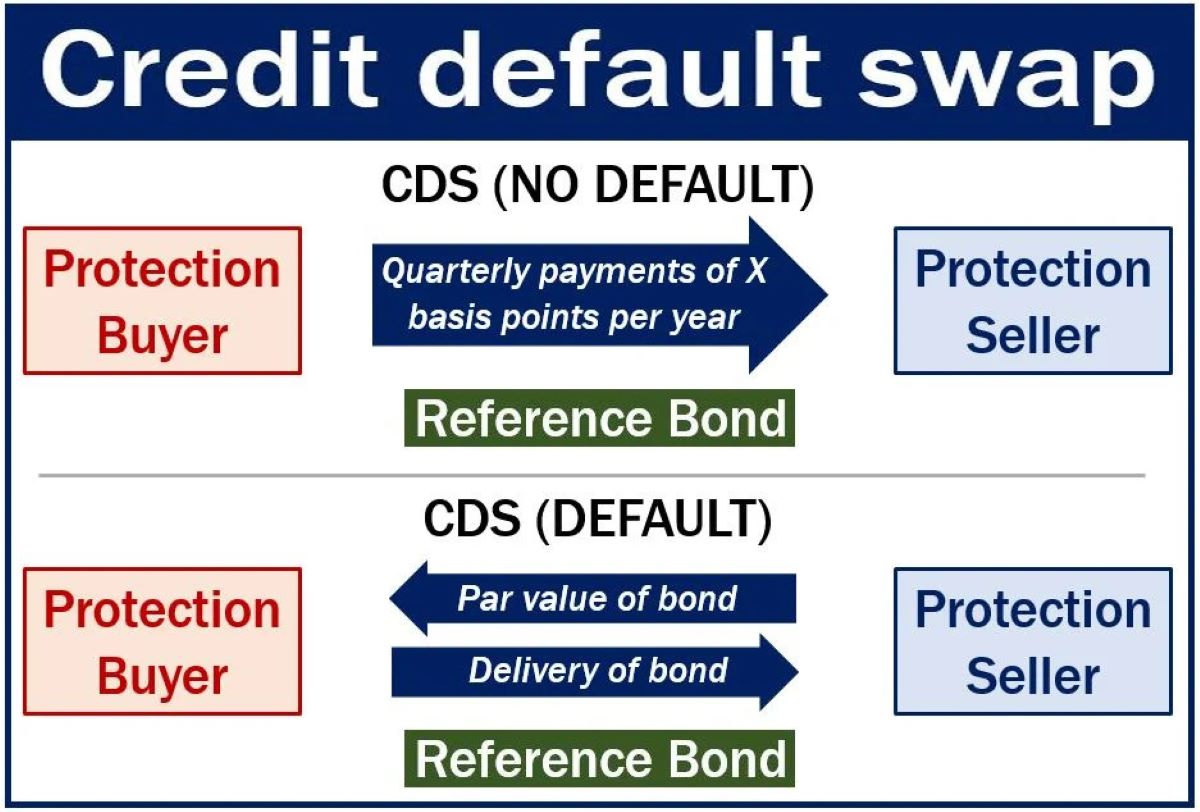

Finance
How Do Rich People Use Life Insurance
Published: October 15, 2023
Discover how wealthy individuals strategically leverage life insurance to navigate their finances and secure their future. Learn the secrets of using life insurance for financial success.
(Many of the links in this article redirect to a specific reviewed product. Your purchase of these products through affiliate links helps to generate commission for LiveWell, at no extra cost. Learn more)
Table of Contents
Introduction
Life insurance is a vital financial tool that provides protection and peace of mind for individuals and their loved ones. While it is commonly associated with covering final expenses and providing income replacement for families, life insurance can also be an effective strategy for wealth accumulation and preservation. This is especially true for affluent individuals who are looking for ways to optimize their financial planning.
In this article, we will explore how rich people use life insurance as part of their overall financial strategy. We will delve into the various benefits and advantages that life insurance offers to the wealthy, including tax benefits, estate planning considerations, living benefits, premium financing, and even charitable giving. By understanding these strategies, you can gain insights into how life insurance can be leveraged to optimize your own financial goals.
However, it is important to note that the utilization of life insurance as a wealth accumulation tool requires careful consideration and advice from financial professionals who specialize in advanced planning. Each individual’s financial situation is unique, and what may work for one person may not be suitable for another. With that in mind, let’s delve into the different ways in which rich people use life insurance to enhance their financial portfolios.
Understanding Life Insurance
Before diving into the specific strategies that rich people use with life insurance, it’s important to have a solid understanding of what life insurance is and how it works. Life insurance is a contract between an individual (the policyholder) and an insurance company, where the company agrees to pay a specified amount of money (the death benefit) to the designated beneficiaries upon the death of the insured.
There are different types of life insurance policies available, including term life insurance, whole life insurance, universal life insurance, and variable life insurance. Term life insurance provides coverage for a specific term, typically ranging from 10 to 30 years, and pays a death benefit only if the insured dies within that period. Whole life insurance, on the other hand, provides coverage for the lifetime of the insured and includes a cash value component that grows over time.
Rich individuals often have complex financial situations and unique needs. Therefore, their life insurance strategy may involve a combination of different types of policies to achieve specific financial objectives. Customizable policies, such as universal life insurance or variable life insurance, can offer flexibility and tailored solutions to meet the needs of wealthy individuals.
It’s important to note that life insurance premiums are determined by factors such as the age and health of the insured, the type and amount of coverage, and the duration of coverage. Premiums can be paid on a monthly, quarterly, or annual basis depending on the policy and the needs of the policyholder.
Life insurance can provide financial security and protection to the loved ones left behind, but it can also serve as a valuable asset in a comprehensive wealth management plan. In the next sections, we will explore the various ways in which rich people utilize life insurance to enhance their financial situations and achieve their long-term goals.
Life Insurance for Wealth Accumulation
While life insurance is often seen as a tool for providing financial protection, it can also be leveraged to accumulate wealth. Wealthy individuals utilize life insurance as a way to diversify their investment portfolio and potentially enhance their overall returns.
One strategy that affluent individuals may employ is to purchase a cash value life insurance policy, such as universal life insurance or variable life insurance. These policies not only provide a death benefit but also include a cash value component that grows over time. The cash value can be invested in a variety of options, such as stocks, bonds, or mutual funds, allowing policyholders to potentially earn tax-deferred growth.
One of the key advantages of using life insurance for wealth accumulation is the potential for tax-free growth. Unlike traditional investments, where taxable capital gains can erode returns, the cash value of a life insurance policy can grow tax-free. This means that policyholders can benefit from compounding returns without incurring immediate tax liabilities.
In addition to the tax advantages, wealthy individuals may also utilize life insurance as an asset protection tool. In some jurisdictions, the cash value of a life insurance policy may be protected from creditors, providing an added layer of security for policyholders.
Another benefit of using life insurance for wealth accumulation is the ability to access the cash value through policy loans or withdrawals. These funds can be used for a variety of purposes, such as funding business ventures, supplementing retirement income, or funding education expenses. It’s important to note, however, that any loans or withdrawals may reduce the death benefit and should be managed carefully to avoid policy lapses or potential tax consequences.
Overall, life insurance can be a powerful tool for wealth accumulation for wealthy individuals. By combining the death benefit protection with the potential for tax-efficient growth, life insurance offers a unique opportunity to diversify investment portfolios and potentially enhance long-term wealth creation.
Tax Benefits of Life Insurance for the Wealthy
One significant advantage that life insurance offers to wealthy individuals is the array of tax benefits. By strategically incorporating life insurance into their financial planning, affluent individuals can minimize their tax liabilities and optimize their overall tax efficiency.
One key tax benefit of life insurance is the tax-free nature of the death benefit. When the insured individual passes away, the beneficiaries receive the death benefit proceeds free from income tax. This can be especially advantageous for wealthy individuals who may have substantial estates subject to estate taxes. By utilizing life insurance, they can provide liquidity to pay estate taxes without requiring the sale of other assets, potentially preserving more of their wealth for future generations.
In addition, the cash value component of certain life insurance policies can grow on a tax-deferred basis. This means that policyholders do not have to pay any taxes on the investment gains within the policy until they make withdrawals or take policy loans. This tax deferral can be particularly beneficial for wealthy individuals who are in higher tax brackets and looking to maximize their investment growth potential.
Moreover, life insurance can serve as a useful tool for individuals who have experienced a significant increase in their income or assets. For those subject to the alternative minimum tax (AMT) or who have exceeded certain income thresholds, life insurance premiums can potentially be deducted as a business expense, thereby reducing their taxable income.
Another tax advantage of life insurance is the ability to exchange one life insurance policy for another, known as a 1035 exchange. This allows policyholders to defer any potential tax consequences when transitioning from one policy to another, providing flexibility and potential tax savings.
It’s important to note that tax laws and regulations are subject to change, and the tax benefits of life insurance may vary depending on individual circumstances and jurisdiction. Therefore, it is crucial for wealthy individuals to consult with knowledgeable tax advisors or financial professionals to ensure they are maximizing the tax advantages of their life insurance policies.
By leveraging the tax benefits of life insurance, affluent individuals can minimize their tax burdens, preserve their wealth, and enhance their overall financial planning strategy.
Estate Planning with Life Insurance
Estate planning is a crucial aspect of financial management, especially for wealthy individuals. Life insurance plays a significant role in estate planning by providing liquidity, preserving wealth, and ensuring a smooth transfer of assets to future generations.
One of the primary purposes of life insurance in estate planning is to address the potential estate tax liability. When an individual passes away, their estate may be subject to estate taxes, which can be quite substantial for wealthy individuals. Life insurance can provide the necessary funds to cover these taxes, ensuring that the estate can be passed on intact to beneficiaries without the need to liquidate other assets.
In addition to liquidity, life insurance can also be used to equalize inheritances among heirs. Sometimes, certain assets, such as a family business or real estate, are not easily divisible. By naming one heir as the beneficiary of these assets and providing life insurance proceeds to the other heirs, a fair and equitable distribution of wealth can be achieved.
Another estate planning strategy involving life insurance is the creation of an irrevocable life insurance trust (ILIT). By transferring a life insurance policy into an ILIT, the policy proceeds are removed from the insured’s taxable estate. This helps to reduce potential estate tax liability and allows the policyholder to retain control over the policy while still providing for the financial security of their loved ones.
Furthermore, life insurance can be used to fund charitable bequests. Wealthy individuals who have philanthropic goals can designate a portion of the life insurance policy proceeds to be donated to charitable organizations upon their death. This not only allows individuals to leave a lasting legacy but also provides potential tax benefits through charitable deductions.
Estate planning with life insurance requires careful consideration of the specific goals and needs of the individual. It is essential to work closely with an experienced estate planning attorney or financial advisor to navigate the complexities of estate tax laws and ensure that the life insurance strategy aligns with the individual’s overall estate planning objectives.
Overall, life insurance serves as a valuable tool in estate planning for wealthy individuals, providing liquidity, wealth preservation, and efficient transfer of assets to future generations.
Living Benefits of Life Insurance for the Rich
While life insurance is primarily associated with providing financial protection in the event of death, it can also offer a range of living benefits for the wealthy. These benefits can provide flexibility and financial security during the policyholder’s lifetime.
One significant living benefit of life insurance is the ability to access the cash value of a permanent life insurance policy. Wealthy individuals may encounter various financial opportunities or emergencies throughout their lifetime that require immediate access to funds. By utilizing the cash value component of their life insurance policy, they can secure a loan or make a partial withdrawal without the need to sell off other assets or disrupt their investment portfolios.
The cash value of a life insurance policy can act as a financial safety net, providing a source of funds for unexpected expenses, such as medical emergencies or even business investments. This liquidity can offer peace of mind and a sense of financial stability in times of uncertainty.
Life insurance can also serve as a wealth transfer tool during the policyholder’s lifetime. By gifting life insurance policies to children, grandchildren, or other loved ones, the policyholder can transfer wealth while still maintaining some control and influence over the policy. This can be especially advantageous for wealthy individuals who want to support their family members financially or contribute to their education or business endeavors.
In addition, some life insurance policies offer a long-term care rider or accelerated death benefit feature. These provisions allow policyholders to access a portion of the death benefit to cover the costs of long-term care services or medical expenses if they become chronically or terminally ill. Having access to these funds can significantly alleviate the burden of healthcare costs for the policyholder and their family.
It’s important to note that the availability and terms of living benefits may vary depending on the type of life insurance policy and the specific provisions within the policy. Wealthy individuals should carefully review their policy contracts and consult with financial professionals to fully understand the living benefits available to them.
Overall, the living benefits of life insurance provide wealthy individuals with financial flexibility, security, and the opportunity to actively manage and utilize their wealth during their lifetime.
Premium Financing for Wealthy Individuals
Premium financing is a specialized strategy that allows wealthy individuals to fund their life insurance premiums by leveraging external sources of capital. This strategy is particularly beneficial for those who want to acquire large life insurance policies but prefer not to use their own liquid assets to pay the premiums upfront.
Through premium financing, high-net-worth individuals can secure loans from banks or other financial institutions to cover the costs of their life insurance premiums. These loans are typically structured so that the premiums are paid directly by the lender, and the policyholder repays the loan over time using various assets or collateral.
One advantage of premium financing is that it enables wealthy individuals to allocate their liquid assets towards other investment opportunities or wealth management strategies. By borrowing funds to pay for life insurance premiums, they can preserve their cash flow and maintain flexibility in their financial planning.
Furthermore, premium financing can be an effective tool for estate planning and wealth transfer. The life insurance policy itself can serve as collateral for the loan, allowing individuals to secure needed funds without requiring additional assets as collateral. This can be especially beneficial for wealthy individuals who have significant illiquid assets or unrealized capital gains.
It’s important to note that premium financing is a sophisticated strategy that requires careful consideration and proper financial management. Individuals pursuing premium financing should work closely with experienced financial advisors who specialize in this area to ensure that the loan structure, interest rates, repayment terms, and policy performance align with their specific goals and circumstances.
Additionally, it’s crucial to evaluate the potential risks and costs associated with premium financing. These may include potential changes in interest rates, fluctuations in the policy’s cash value performance, and the obligation to repay the loan even if the policy’s performance falls short of expectations.
Overall, premium financing offers wealthy individuals an opportunity to leverage external sources of capital to fund their life insurance premiums, allowing them to preserve liquidity, maintain financial flexibility, and strategically manage their wealth and estate planning objectives.
Charitable Giving Using Life Insurance
Charitable giving is a meaningful way for wealthy individuals to give back to society and make a positive impact. Life insurance can be a valuable tool for facilitating charitable giving and leaving a lasting philanthropic legacy.
One common approach to charitable giving using life insurance is to designate a charitable organization as the beneficiary of a life insurance policy. By naming a charity as the beneficiary, policyholders can ensure that a substantial portion of the death benefit goes towards supporting their chosen cause. This provides a reliable and tax-efficient way to support charitable organizations that are near and dear to their hearts.
In addition, wealthy individuals who wish to make a larger charitable contribution may consider establishing a charitable remainder trust (CRT). A CRT allows individuals to transfer a life insurance policy into the trust, providing an income stream to themselves or their designated beneficiaries. After the trust’s term ends, the remaining assets in the trust are distributed to the charitable organization. This strategy allows individuals to receive income during their lifetime while still making a significant charitable contribution.
Alternatively, life insurance policies can also be transferred to charitable organizations during the policyholder’s lifetime. This can create an immediate income tax deduction for the policyholder based on the policy’s fair market value, subject to certain limitations and IRS regulations. This approach allows policyholders to witness the impact of their charitable giving and potentially receive recognition during their lifetime.
Moreover, life insurance policies can also be used to fund charitable gift annuities. Under this arrangement, the policyholder transfers the policy to a charitable organization in exchange for a fixed income stream for a specific period of time. Once the annuity term ends, the remaining funds are used by the organization for their charitable endeavors.
It’s important for individuals interested in charitable giving using life insurance to consult with financial advisors and tax professionals who specialize in philanthropic planning. They can guide wealthy individuals in structuring their charitable giving strategies to ensure maximum impact and optimize potential tax benefits.
By utilizing life insurance as a vehicle for charitable giving, wealthy individuals can leave a lasting legacy and make a meaningful difference in the causes they support, while also potentially leveraging tax advantages.
Conclusion
Life insurance is a versatile financial tool that offers a range of benefits for wealthy individuals. It serves not only as a means of financial protection for loved ones but also as a valuable asset for wealth accumulation, tax planning, estate planning, and charitable giving. By understanding and leveraging the various strategies available, affluent individuals can optimize their financial planning and enhance their overall wealth management.
Utilizing life insurance for wealth accumulation allows wealthy individuals to diversify their investment portfolios while potentially enjoying tax-free growth. The cash value component of certain policies offers flexibility and liquidity, serving as a valuable asset during unforeseen circumstances or for seizing investment opportunities.
The tax benefits of life insurance further enhance its appeal for the wealthy. Tax-free death benefits and tax-deferred cash value growth provide opportunities to minimize tax liabilities and protect their wealth for future generations. Life insurance can also be employed strategically in estate planning, ensuring the smooth transfer of assets, covering estate taxes, and equalizing inheritances among beneficiaries.
Furthermore, life insurance provides living benefits that offer financial security during the policyholder’s lifetime. Policyholders can access the cash value for various purposes, including funding emergencies, business ventures, or supplementing retirement income. Premium financing offers an opportunity to preserve liquidity by leveraging external sources of capital to pay life insurance premiums.
Lastly, life insurance can be a vehicle for significant charitable giving. By naming charitable organizations as beneficiaries, establishing charitable trusts, or using life insurance to fund charitable annuities, wealthy individuals can leave a lasting philanthropic legacy while potentially enjoying tax advantages.
It is crucial for wealthy individuals to work closely with financial professionals who specialize in advanced financial planning and have a deep understanding of life insurance strategies. These professionals can provide personalized guidance, considering individual circumstances and goals to ensure that the selected life insurance strategies align with the broader financial objectives.
In conclusion, life insurance offers a multitude of benefits and opportunities for wealthy individuals seeking to optimize their financial planning. By harnessing the power of life insurance, affluent individuals can protect their wealth, accumulate assets, minimize tax liabilities, and leave a meaningful legacy through charitable giving.














